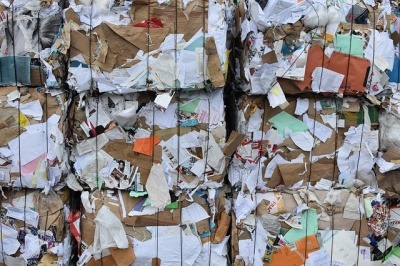Declining paper recycling rates: Two in five pieces headed for landfill by 2030
New research from DS Smith has revealed that over two in five (44 per cent) pieces of paper and cardboard are set to end up in landfill if declining paper recycling rates are not tackled
 DS Smith’s report – entitled ‘Wasted Paper: A Path to Better Recycling’ – estimates that this projected loss of sustainable packaging will equate to 17.3 million tonnes at a cost of £2.8 billion.
DS Smith’s report – entitled ‘Wasted Paper: A Path to Better Recycling’ – estimates that this projected loss of sustainable packaging will equate to 17.3 million tonnes at a cost of £2.8 billion.
The figures come following five years of declining recycling rates in the UK – coinciding with the growth of e-commerce – and sees the country positioned as one of the worst recycling performers across Europe.
Despite its position as the third largest producer of paper and card waste in Europe, the UK sits 25th out of 30 European nations for recycling rates. In the year 2020, just 74 per cent of paper and card was recycled in comparison to the European average of 82 per cent. DS Smith’s report projects that the figure may drop as low as 56 per cent by 2030.
UK paper recycling rates declining amongst young people
The report also claims that recycling is ‘falling out of fashion’ with younger people. Approximately seven in ten (71 per cent) 18-24-year olds recycle all of their paper and card in contrast to around nine in ten (92 per cent) of those over 65.
Across all age groups, DS Smith found limited trust in the country’s recycling system, with just 66 per cent of Brits confident that the paper and card they recycle is processed correctly by the relevant authorities.
To reverse the declining recycling rates in the UK, the DS Smith report underscores the need for separate collections for paper and card, a uniform recycling approach across the country, alongside improved labelling and consumer education.
However, this is in contrast to the recent Simpler Recycling announcement – branded a ‘backwards step’ by the report – that promotes co-mingled collection of dry recyclables, including paper and card, as the standard across England, an approach which DS Smith highlights as causing increased contamination compared to a source segregated model.
John Melia, Strategy Development and Innovation Director, Recycling at DS Smith commented: “To revitalise recycling, we should learn from the proven, effective approaches of other UK and European nations who are reaping the benefits of well-structured recycling systems.
“Poor recycling in the UK rates not only compromise the environment, they stand in the way of realising a big economic opportunity – we can all agree that leaving £2.8bn on the table is madness when there’s a thriving industry ready to receive the material and put it to good use, supporting thousands of jobs and creating value for the economy in a circular way.
“Given the scale of the environmental and economic opportunity, the Government’s proposals are a step in the wrong direction and will do nothing to improve already record-low recycling rates.”







